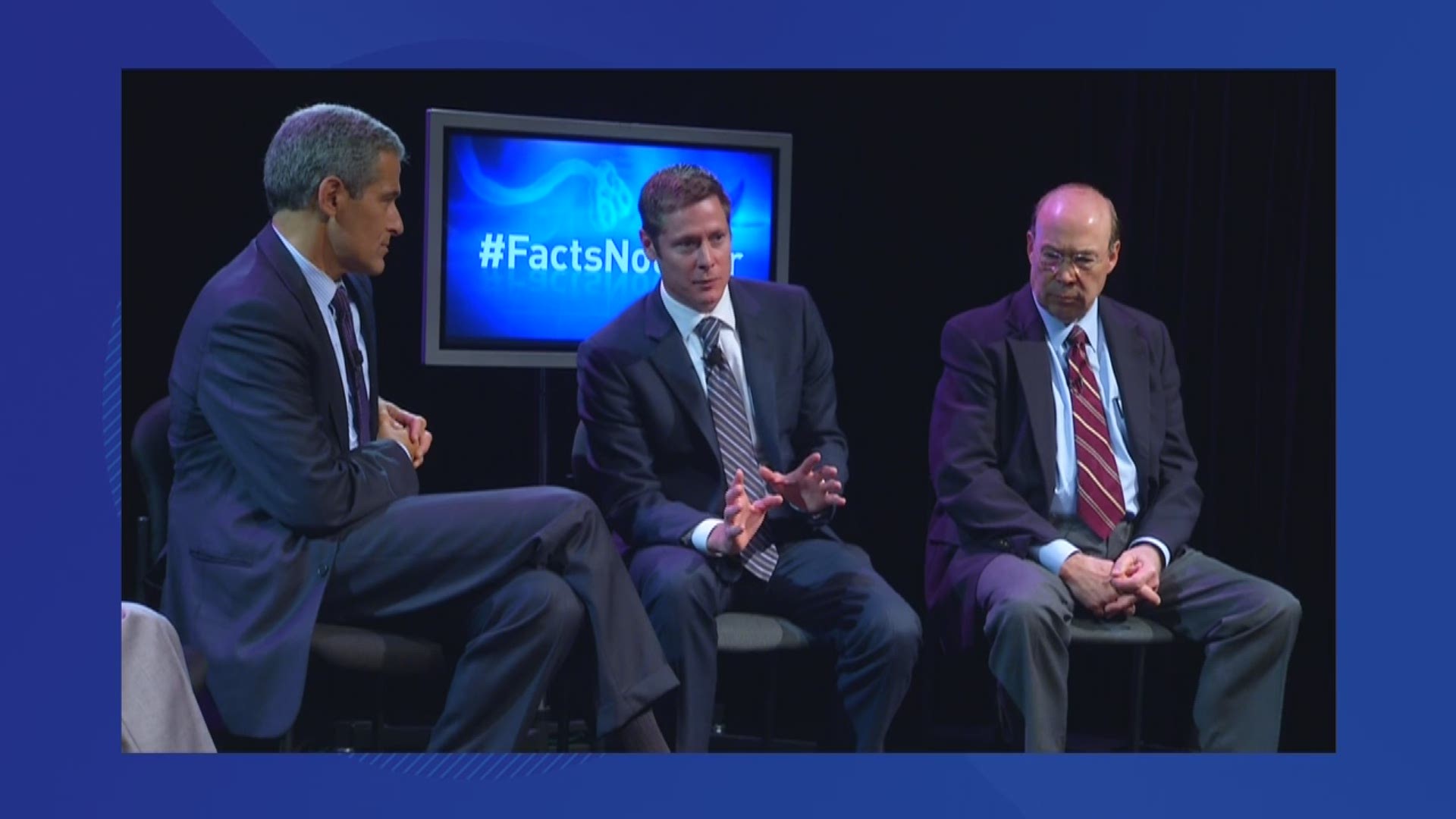DALLAS — Dr. John Carlo was front and center in town halls and he was interviewed almost daily during when Ebola appeared in Dallas in 2014.
He was the president of the Dallas County Medical Society and was responsible for sharing facts with the public in hopes of tamping down fear.
Coronavirus is not Ebola, but to Carlo, the scenario feels familiar.
“Yeah, just here we go again,” he said, explaining how he felt when the virus began appearing in Texas.
Carlo is now the CEO of Prism Health, a non-profit organization working with HIV and AIDS patients in Dallas.
In an interview on Wednesday, just 24 hours after the first presumptive positive cases of COVID-19 appeared in Dallas County, he said the region is likely more prepared to fight coronavirus than most of America.
RELATED: VERIFY: Viral 'coronavirus vs SARS/Ebola/swine flu' graph is accurate, but leaves out context
“Remember it’s not just Ebola that happened in Dallas,” he said. “We had West Nile in 2012. Texas has also had hurricane evacuations. So, the number of crises we’ve had in North Texas, and Texas in general, gives us a lot of experience.”
He believes local healthcare workers, in particular, are armed with more knowledge than many.
“What we learned from the Ebola experience on protecting healthcare workers is really helping us this time around,” he said. “These are battle wounds we remember very, very well. You learn from them. You have to learn from them.”
Learn more about how the 2014 Ebola response created a framework for managing a crisis in this episode of Y'all-itics:
Or subscribe wherever you get your podcasts:
Coronavirus presents very different challenges than Ebola. While symptoms might not seem as frightening, it spreads much easier and much faster.
“It seems to be more easily transmissible,” he said. “In the past with Ebola it happened quickly and went away relatively quickly, thankfully. But, [with coronavirus] we’re not seeing anything that’s going to lead us to think we’re going to slow down.”
Carlo knows that the same difficult decisions he was helping make and the conversations he was part of in 2014 are similar to things happening now across the region, state, country and world.
He believes each crisis prepares us for the next and he hopes North Texans feel confident, but he also understands why they also feel concern.
“The only guarantee I guess is that we’re going to continue to see these new and emerging infectious disease threats and it’s just part of our lives now,” he said. “I think it’s part of being human to fear them.”

